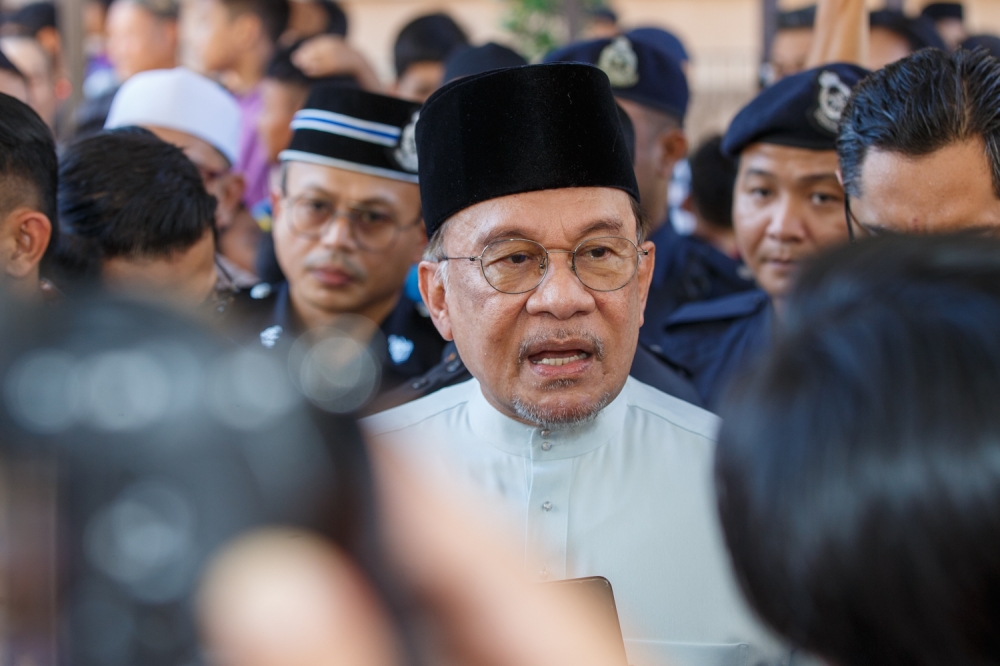JULY 31 — Since assuming the role of Malaysia’s 10th Prime Minister, Datuk Seri Anwar Ibrahim has faced consistent scrutiny. While political opponents have unsurprisingly challenged his leadership, some of the more pointed critiques have come from within the reformist base that long supported his political journey. Their frustration is understandable. After more than two decades of anticipation, many had hoped that Anwar’s premiership would usher in sweeping reforms with immediate impact. Yet, governance, particularly in the current Malaysian context, is far more complex than electoral slogans or ideological conviction.
The political reality that Anwar now navigates is markedly different from that of the 1990s, when his reformist ideals first gained prominence. Today’s Malaysia is defined by fragmented electoral mandates, multiparty coalitions, and an electorate that is increasingly polarised along ideological and ethno-religious lines. His unity government was forged not out of ideological alignment but political necessity, and it represents a precarious balance of competing interests. In such a context, pushing through bold reforms without broad consensus is not only risky but potentially destabilising.

Prime Minister Datuk Seri Anwar Ibrahim speaks to the media after performing Friday prayers in Putrajaya July 18, 2025. — Picture by Raymond Manuel
Some have mistaken Anwar’s diplomacy and caution for indecision. But his approach is better understood as a form of political realism. Leading a coalition with divergent views requires negotiation, patience, and at times, delay. It is not that he lacks commitment to reform, but rather that he understands reform can only be sustained if it is rooted in political stability. Compromise in this setting should be seen not as capitulation but as strategy.
Economic concerns remain at the forefront of public discourse. Anwar’s critics argue that his administration has not done enough to address cost-of-living pressures or income inequality. However, these critiques often ignore the structural limitations inherited by his government. Malaysia is still recovering from the economic shocks of the Covid-19 pandemic, grappling with global inflation, and managing a sizable national debt. These conditions require a steady fiscal hand rather than populist spending. Instead of short-term handouts, Anwar’s government has prioritised targeted subsidies, responsible fiscal management, and the attraction of long-term investment.
His focus on economic resilience over populist relief may not satisfy those in search of immediate benefits, but it reflects a long-view approach to governance. Efforts to boost investor confidence, revitalise industrial policy, and position Malaysia as a competitive player in sectors such as clean energy and digital technology show a strategic orientation toward sustainability. This is not a politics of spectacle but one of structural reform.
In the realm of governance, Anwar has consistently voiced his commitment to transparency and institutional integrity. His administration has initiated steps to reform procurement practices, enhance oversight mechanisms, and restore public confidence in bodies such as the Malaysian Anti-Corruption Commission. These moves are incremental rather than revolutionary, but they matter. Reforming institutions is a gradual process, especially in a system where administrative norms and political culture have long been resistant to change.
An often-overlooked dimension of Anwar’s leadership is his civilisational idealism. This is most clearly articulated in his Malaysia Madani framework, which emphasises a values-based model of governance rooted in compassion, intellectualism, and inclusivity. For Anwar, Islam is not a political instrument but a moral compass for nation-building in a plural society. This vision reflects his long-standing belief that Malaysia can offer a model for coexistence between tradition and modernity, faith and reason, and majority and minority.
However, this idealism is not without domestic friction. Some conservative quarters view Malaysia Madani with suspicion, fearing that it undermines traditional Islamic norms or dilutes Malay-Muslim identity. These anxieties are real and politically consequential. They reflect deeper tensions within Malaysian society about the role of religion in public life, and they serve as a reminder that visionary leadership often provokes resistance precisely because it seeks to move society forward.
Anwar’s idealism also extends beyond Malaysia’s borders. At a media briefing in December 2024, he reaffirmed his belief in the need for global civilisational dialogue. His engagement with China’s Global Civilisation Initiative, for instance, offers a diplomatic platform to promote peaceful coexistence between cultures and nations. This international orientation echoes themes from his seminal 1996 work, The Asian Renaissance, where he called for a revival of Asian values rooted in justice, dignity, and mutual respect.
Yet, as with his domestic agenda, Anwar’s civilisational outlook faces daunting challenges. Ongoing global conflicts, such as the war in Gaza, expose the limits of dialogue in a world still shaped by hard power, nationalism, and deep-rooted mistrust. The vision of cross-civilisational understanding remains distant and perhaps utopian in many corners of the world. Nevertheless, Anwar’s persistence in championing engagement over isolation demonstrates a political ethos grounded in moral conviction rather than expediency. His message is clear: the path to peace and justice lies not in retreat but in sustained and difficult dialogue.
To judge Anwar Ibrahim solely by the pace of his reforms would be to misread the broader narrative of his leadership. His political journey has never been linear, and his current role demands more than mere rhetoric. It requires statecraft. The balancing act he performs each day involves navigating competing domestic interests, managing global relationships, stabilising a fragile economy, and advancing a reform agenda in a resistant system. This is no small task, and it is one that few leaders are equipped to handle with both patience and principle.
Malaysia does not need a leader who promises miracles. It needs a leader who understands the constraints of the moment and works within them to build the foundations of long-term progress. Anwar Ibrahim may not deliver instant change, but his leadership is shaped by a belief that democracy, justice, and coexistence are not abstract ideals. They are objectives that must be pursued with persistence, humility, and realism.
In an era dominated by populism and political performance, perhaps the true measure of reform is not how loudly it is declared but how steadily it is pursued. Anwar’s legacy will ultimately rest not on how much he promises but on how much he builds that endures.
* Muhamamd Makmun Rasyid is a founder of the Centre for Indonesian Crisis Strategic Resolution (CICSR)
** This is the personal opinion of the writer or publication and does not necessarily represent the views of Malay Mail.






